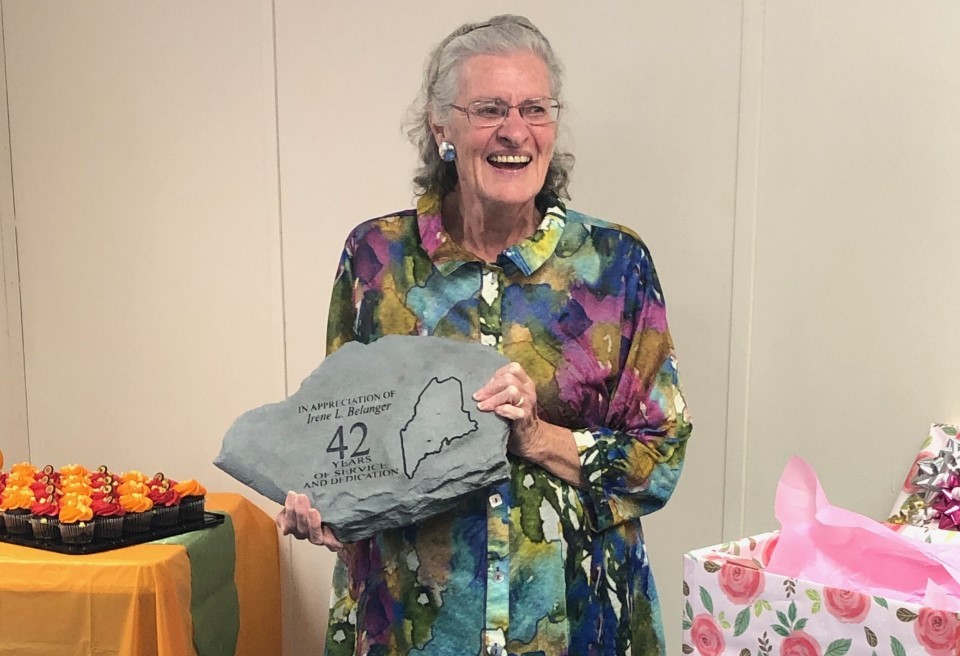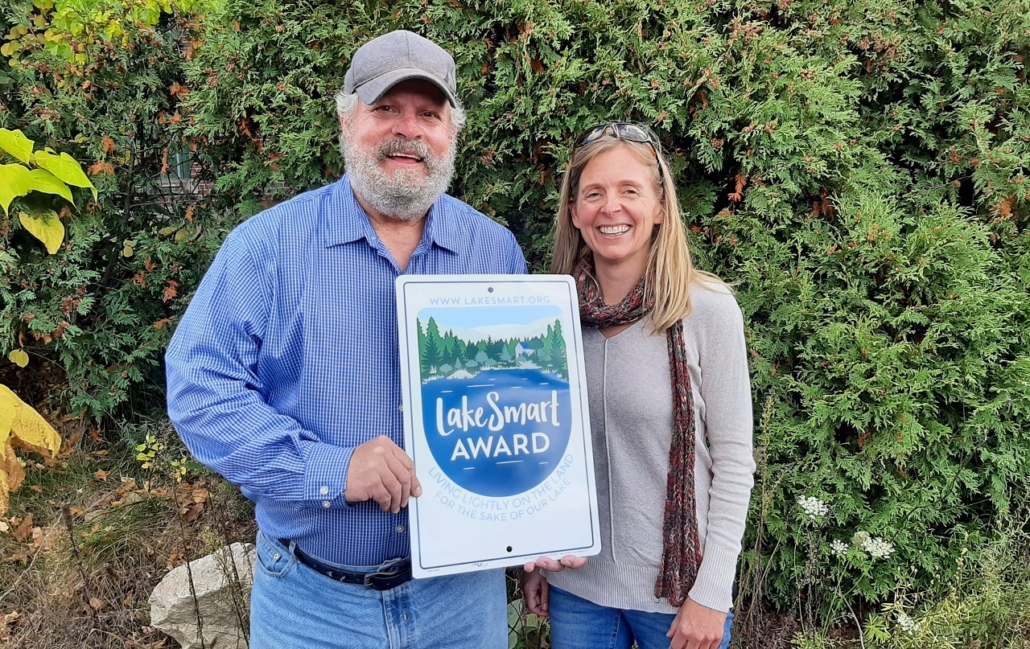China’s treasured community leader retires
42 years service to town; 22 years as select board member
by Deborah Belanger-Warnke
Whether in the public eye or behind the scenes, over the past 22 years China residents have placed their trust and confidence in Irene Lydia Belanger. Serving as an elected member on the China Select Board, she has been steadfast in representing the people’s best interests and moving the community forward.
While many of us may struggle to find time to volunteer for basic community endeavors, there are those individuals who strive to make a difference for the community at large on a frequent basis. We are fortunate that one of those individuals came to reside in China, Maine, in 1969. Since then, Irene has been serving China in many capacities; wearing many hats over the last 42 years. In today’s standards it is a rarity to find such enduring dedication and strong sense of duty to one’s community.
Irene’s service to China started when she literally wore the hat of a Cub Scout leader in 1970. Her interest in community work sprung from the leadership and teaching of a young pack of cub scouts that included several of her sons. This initial volunteer work planted the seeds of a community leader who went forward to impact China in so many ways.
No matter the roles she served in, it was Irene’s moral compass and compassion for community that became her guiding light throughout a life-time of community service in China. If you talk with Irene, it becomes quite evident that serving her community in multiple capacities over 42 years has left her feeling extremely proud and satisfied.
Irene was never one to say “no” to a request for her assistance. She volunteered to drive community members to medical appointments or shopping, Trunk or Treat, Transfer Station drug drop off and many other town events. Her community outreach left a footprint on the following local committees: Comprehensive Planning Board, China Days, Economic & Community Development, Transfer Station, Recreation, Lake Access, Thurston Park and Roadside Clean-up.
In representing the town of China, Irene’s work led to travel to many areas of Maine, working alongside politicians, community business leaders, RSU #18 teachers and superintendents, along with many municipal leaders. Over the years, Irene’s hard work and esteemed dedication to duty led to her selection on the Board of Directors for the following organizations: the Municipal Review Committee (MRC), the Kennebec Valley Council of Governments (KVCOG), the Maine Resource Recovery Association (MRRA), and Spirit of America. Irene also served as the president of KVCOG and worked on various committees for the Mid-Maine Chamber of Commerce (MMCC).
It is no wonder Irene has been recognized for outstanding achievement from the Maine Real Estate Commission, the Kennebec Valley Council of Governments, the Mid-Maine Chamber of Commerce, Spirit of America, the Messalonskee High School Eagle Award from the Alumni Association, and the Maine Resource Recovery Association. She most recently received an award from the Town of China on Monday, October 25, honoring her service.
Irene wishes to thank her spouse Joseph V. Belanger, her family, the China Town Manager Becky Hapgood, state wide committee and board members, fellow China select board members, the transfer station staff, the China community and many others for their caring and support over the past 42 years.
“My service to the China Community has been important work and very satisfying to me,” Belanger said. “I’m honored to have done my very best for others and to have represented the Town of China. My love of community has served me well over the years, I feel so grateful to have done this valuable and rewarding work”.
Irene was quick to say, “I will so miss being a China select board member, however, I’m still here to serve, and will continue to be active in my community anyway I can.” With a twinkle in her eyes she laughed saying, “Don’t worry, Becky Hapgood has my number! Besides, my interest in the Transfer Station Committee, recycling and Free for Taking building will keep me busy.”
Irene graciously passed the torch to current and newly-elected China Select Board members on November 2. Thank you, Irene, for a “Job Well Done” and your selfless service to the citizens of China, Maine, and beyond for over 42 years! Enjoy your retirement!






 Once again, it is time to order your sweet, sparkling citrus fruit in time for Christmas or Thanksgiving. The fruit is picked and shipped within 24 hours and is guaranteed to be in peak condition and flavor, or your money back. Shipping costs only $6.95 per box, and can be delivered anywhere in the continental U.S.
Once again, it is time to order your sweet, sparkling citrus fruit in time for Christmas or Thanksgiving. The fruit is picked and shipped within 24 hours and is guaranteed to be in peak condition and flavor, or your money back. Shipping costs only $6.95 per box, and can be delivered anywhere in the continental U.S.






